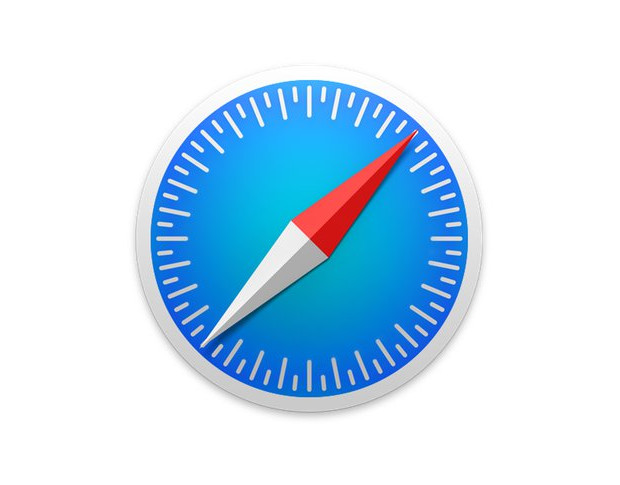Apple needs to un-Mac-ify security and privacy in Safari
Safari is a good browser, but it could be better. Unfortunately, one area that requires improvement is the un-Mac-ifying of the privacy settings. Find out what Jack Wallen means by this.

Image: Apple
If I open the Safari Settings window and head over to the Privacy section, here’s what I can do:
- Enable/disable Website tracking
- Enable/disable Hide IP address
- Enable/disable Block all cookies (with the addition of managing website data)
- Enable/disable Web advertising
Let’s compare that with Firefox, where I can:
- Set Enhanced tracking protection from Standard, Strict and Custom
- Enable/disable “Do Not Track”
- Clear and manage cookies and site data
- Manage logins and passwords
- Enable/disable forms and autofill
- Manage history
- Enable/disable Firefox Suggest options
- Manage all permissions
- Enable/disable data collection and usage
- Enable/disable dangerous and deceptive content/downloads/software
- View and manage certificates
- Enable/disable HTTPS-Only Mode
One of these things is not like the other.
SEE: Google Chrome: Security and UI tips you need to know (TechRepublic Premium)
For the past couple of years, Apple has made plenty of claims that its browser is all about security. The problem is, like with so much of what they do, Apple forces the users into working with their apps the way they believe is best. To that end, they keep the available settings to a minimum. I believe this is very much intentional, as Apple probably believes user security is best left in the hands of the company creating the product.
But not every user is equal. Some users prefer to have more control over the security of their applications. One of the reasons I like using Firefox is that it allows me to configure the browser to behave how I want it. Although the out-of-the-box experience is pretty safe, I know there are things I can do to make it even better.
Apple needs to make it possible for such users to take the reins and better customize the privacy settings of Safari. I’m not saying such an option would be for everyone, but those who do want a bit more control should be able to have it. Maybe they could add an option to unlock advanced privacy features in Safari.
I’m certain this won’t happen. For the longest time, Apple has gone to great lengths to make its software foolproof. To that end, the company has done a fine job. When you work with the likes of Safari, Apple Mail, Final Cut Pro X … they just work. It’s only on rare occasion that I have a problem with a piece of Apple software. But given the constant threat of attacks we face online, it would sure be nice if I could open the Safari settings and have a bit more control over how the software works.
Again, it won’t happen. This is Apple, after all, a company that is absolutely certain it knows best how to use its software. And that’s fine. But when there are browsers that give me far more control over the security of the application, I’m going to be inclined to use them. And, in the name of absolute transparency, if it weren’t for the latest iteration of Safari offering exponentially better tab management than Firefox, I’d still be using the open-source browser as my default when I have to work on a Mac. But I do so begrudgingly.
Caveat emptor
Of course, the buyer should beware the software they use. That’s a huge problem within the world of technology. Billions of users are still working with Chrome—a browser that is constantly under attack and always tracking and saving user data. Even with information available, users continue with Chrome.
SEE: How to control activity tracking by apps on your iPhone or iPad (TechRepublic)
Most users don’t understand the dangers presented by web browsers. And Apple going about its business in this way doesn’t help matters. It’s almost as though Apple is saying, “Don’t you worry about anything … we’ll take care of it.” But when you keep users ignorant of the dangers they face, they remain unaware that there might be better, more secure, choices.
Ah-ha! A crux comes to the fore.
I’m not saying this is precisely what Apple is doing, but would it surprise you to find out it was? Some browsers go out of their way to protect your privacy, such as:
And then some browsers want you to think they’re safe, but their claims are questionable, at best. Safari is one such browser. But Apple doesn’t want you to know that, and it certainly doesn’t want you installing another browser on macOS. You can … just not get it from the App Store. If you want to install Firefox, Opera or Brave all you have to do is point Safari to one the product page, download the installer, install the software and run it.
The average user probably doesn’t know that, and Apple is OK with keeping them in the dark. Just like they’re good with not giving them more control over the security of their browser.
Look, I’m not saying you should immediately switch from Safari to Firefox. If, however, you want more control over your privacy, that’s probably a smart thing to do. Apple isn’t going to un-Mac-ify Safari any time soon, so if you want to browse with more privacy and security, consider an alternative.
Subscribe to TechRepublic’s How To Make Tech Work on YouTube for all the latest tech advice for business pros from Jack Wallen.
Also see
For all the latest Technology News Click Here
For the latest news and updates, follow us on Google News.


